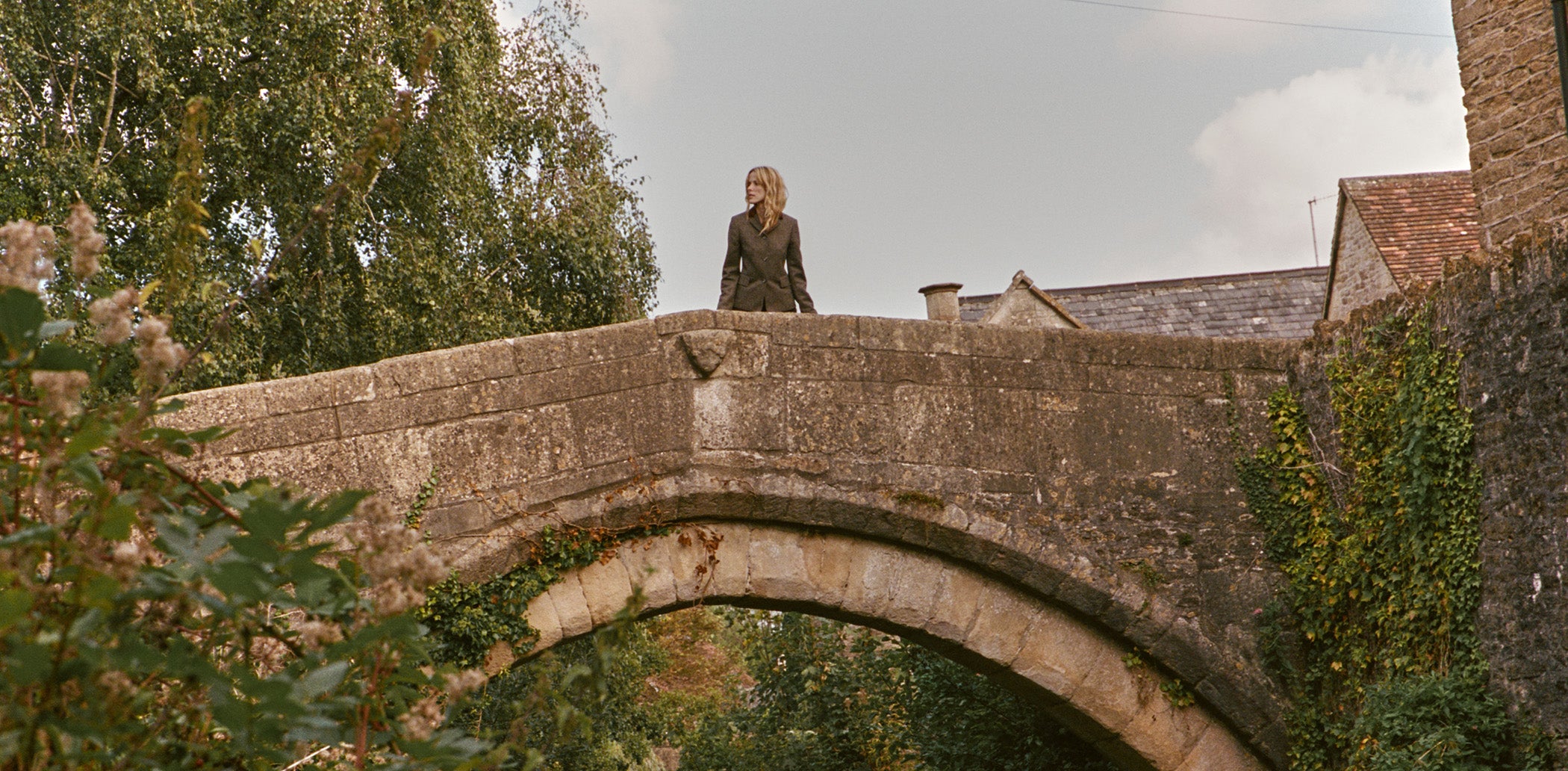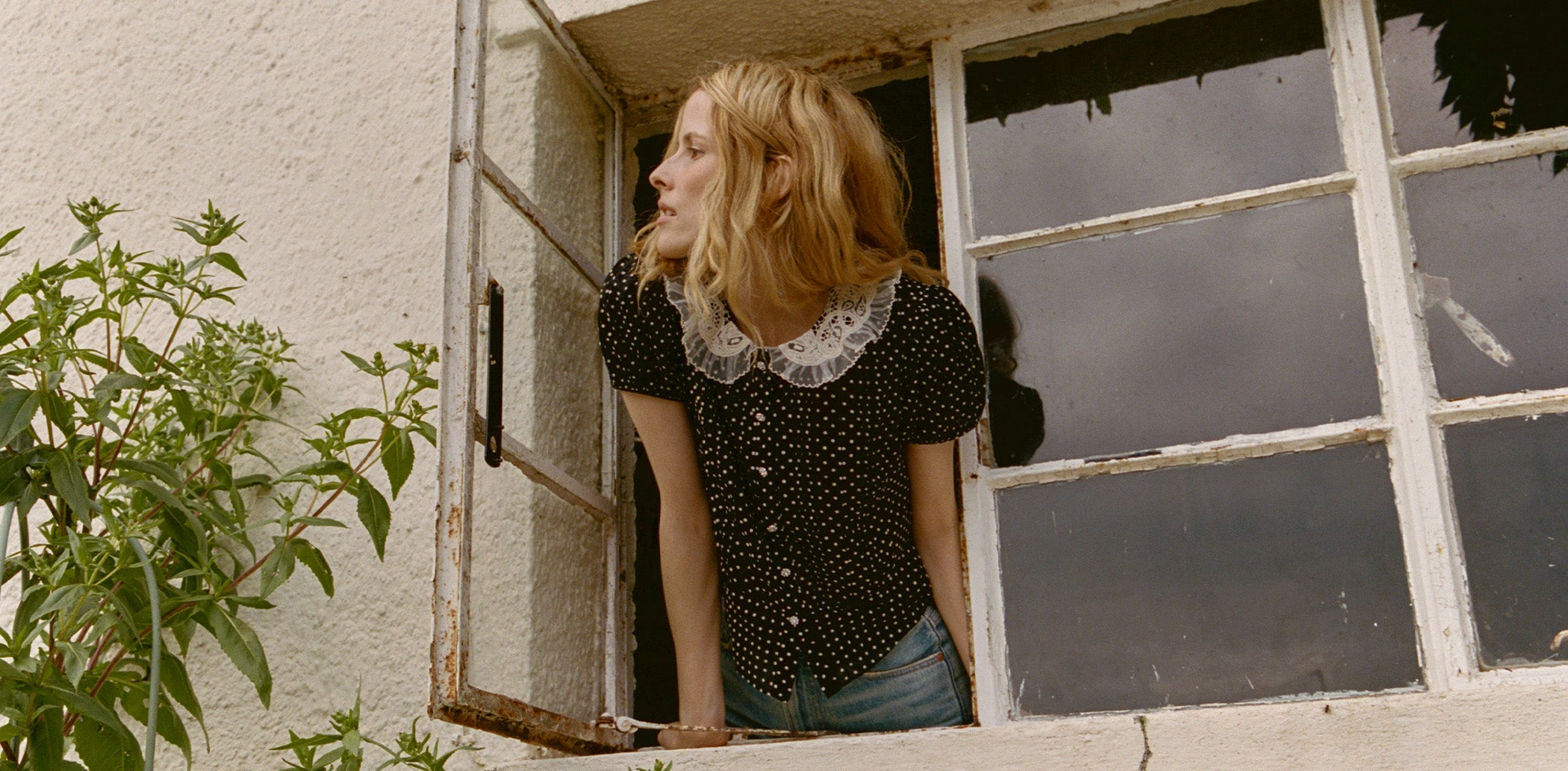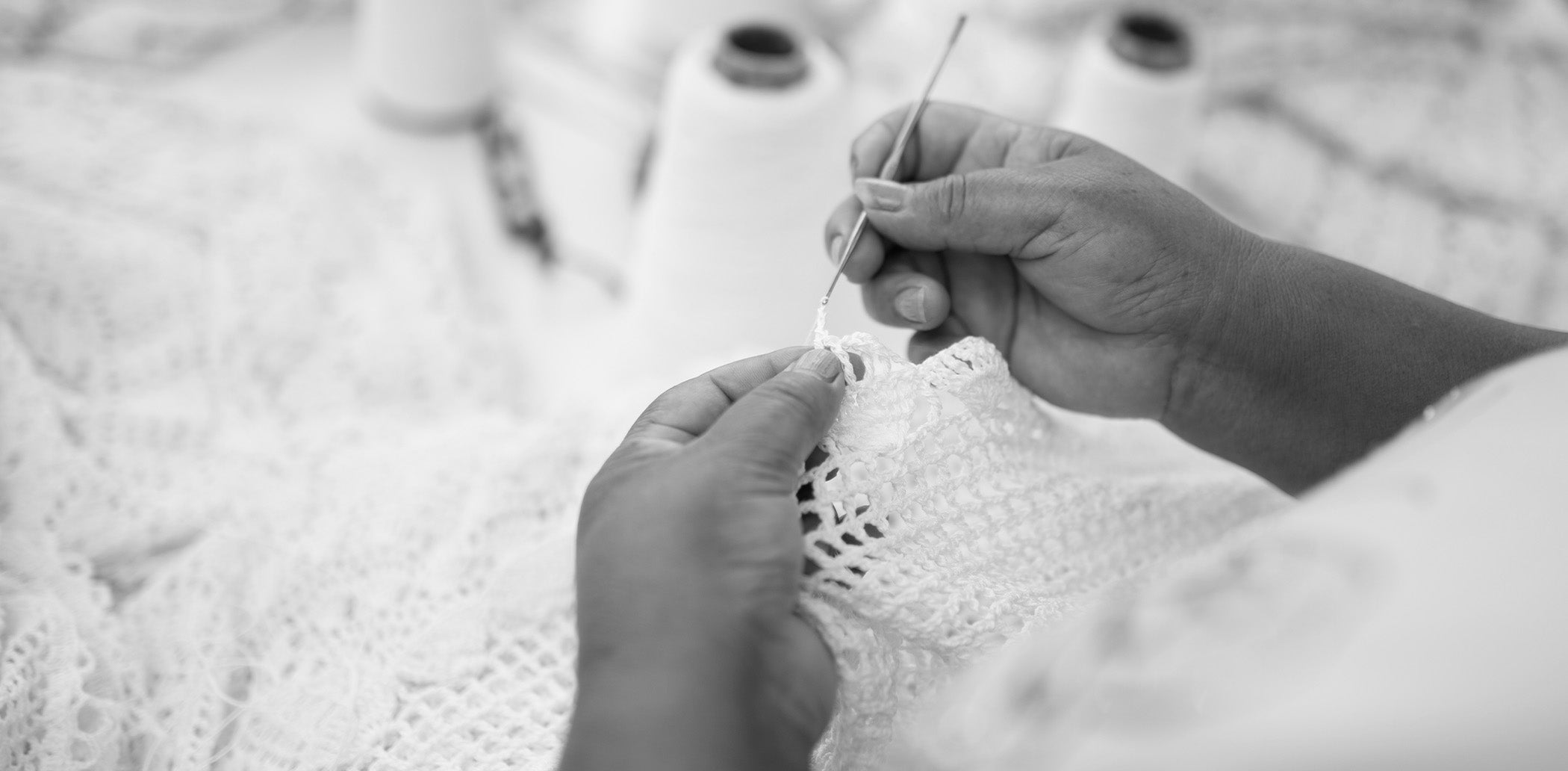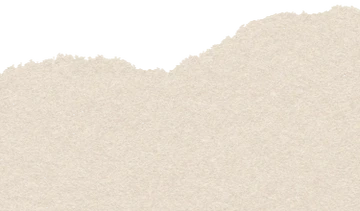JOURNAL
At Home with Deborah Needleman
Deborah Needleman wears the June Top and the Rieti Skirt, photographed by her daughter, Lily Weisberg
Tell us a bit about how you got into basket weaving. What inspired the shift?
I had many happy years as a magazine editor and writer, collaborating with incredibly talented people, but there came a time when I wanted another kind of life. I wanted to try to work with my hands (instead of just my head), to make something from beginning to end by myself, and to live more closely connected to the rhythms of nature and the seasons. I’ve always found baskets beautiful, in part because of how humble they are.
And yet, they are rich objects in a way—full of history, nature, and culture, but also overlooked in a way because of their usefulness. They were made out of necessity, used hard, and rarely given any regard as the technical and cultural repositories they are. They aren’t necessary anymore, so their specialness is more apparent now.
In past interviews you’ve talked about learning a new set of skills in your 50s—can you share a bit more about that with us? What has that process been like for you, and what’s one of the biggest lessons you’ve learned?
In some ways it was an odd thing to do—to uproot my professional life at this late stage in the game, when things were going well, but in another way, it’s an incredible privilege and freedom to be able to do just that. I’ve always thought that it’s good to have a Plan B somewhere in your mind, so that if things don’t work out as you hope, you won’t be completely unmoored. I tried never to get too attached to my jobs or their perks or status, but being a basket maker was never a conscious plan for me, until it was. Things just started shifting for me, in terms of my priorities, how I wanted to live, and what I wanted to do. And then it just came to me, and I haven’t let it go yet.
It’s amazing and wonderful to be engaged in something completely new, but I am aware that I’m slower to learn and to retain information than I was when I was younger. It also took some time to adjust to working on my own. In the first year or two, I felt like I had to figure out who I was every morning when I woke up; I had to define my life myself, because there were no schedules, events, meetings, etc. to structure my day and create a sense of purpose. But those challenges are a small price to pay for the calm and happiness I now feel. (Not that I still don’t have stress or anxiety, but it’s nothing like what I felt before.) There is so much more pleasure and serendipity and openness in my life now.
Let’s talk a bit about your personal style – how has that shifted as your vocation has changed? When and where do you feel most at ease?
I no longer have to dress for anyone else! I sold a ton of so-called luxury clothing when I quit my job. I saved the few things that were really special to me. I’ve nearly given up wearing heels—they’re not necessary, even when dressed up. I wear a lot of well-made work clothes, and strangely, more dresses and skirts than I did before. Clothes no longer have to be a kind of armor; now they are much more a reflection of who I am and how I want to feel.
“So much of success is luck—the other part is hard work. I think I was really fortunate to have had another version of life, and I think I needed that to be able to enjoy this version.”
Tell us a bit about your relationship with your daughter, Lily. It’s so special that she wanted to photograph you for this story. What kinds of things have you learned from her?
My daughter is turning 24, but she’s always been an adult in many ways—so clear in who she is and what she’s interested in, and so delightful to be around. We have a little joke that comes from a scene in the show Girls, where Gaby Hoffman has a new baby, and she says, “I’m her mother, but she’s my mother too.” It’s like that with Lily.
She’s a fledgling film director, and has just started playing around with still photography using film in an old 35mm camera we had around. It’s funny, because she’s a great writer and I think of her as intellectual, and so the fact that she has this very sophisticated, quite poetic visual sense always comes as a wonderful surprise to me. She sees things that I don’t.
If you had to give advice to your younger self, what would it be?
I was never particularly good at taking advice, probably even from myself. I kind of think I did what I should have done, which was to follow my passions and interests, and to try to parlay those things into jobs by being open enough to put myself in the way of opportunity. So much of success is luck—the other part is hard work. I think I was really fortunate to have had another version of life, and I think I needed that to be able to enjoy this version. Does that make sense?
What are you most looking forward to this summer?
Being in the garden, seeing it change every day; weaving with the doors flung open; traveling with friends and family.
Deborah wears the Jane Blouse and the Amaris Skirt
Deborah wears the June Top and the Rieti Skirt
Deborah's studio
Deborah wears the Ischia Dress
Published June14, 2023




